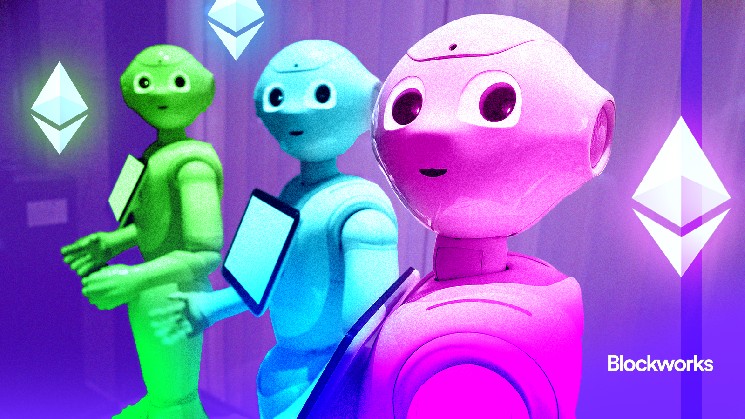This is part of The Drop newsletter. Please subscribe to read the full version.
How will we find new AI agents to use in the near future? What will a decentralized and more open AI ecosystem look like? And how will they make payments on our behalf?
ERC-8004, the new Ethereum technology standard first announced this summer, aims to be the answer to all of this. The standard has been peer-reviewed, and its smart contracts were launched on the Ethereum testnet this month. MetaMask AI Lead Marco de Rossi, Ethereum Foundation AI Lead Davide Crapis, Google Engineer Jordan Ellis, and Coinbase Developer Platform Engineering Lead Erik Reppel co-authored the protocol. The protocol also incorporates feedback and contributions from many other cryptocurrency companies and projects.
Loading tweets..
ERC-8004 allows builders and users to create NFT-like AI agents and delegate them using ERC-721 rails. This makes AI agents discoverable and allows agent reputation scores to be kept on-chain. AI agents can use x402, a new open payment protocol developed by Coinbase.
Agent developers will eventually be able to charge for access to their tools and agents, deploying them into different use cases around user productivity, transactions, payments, and even reshaping consumer subscription diets. Perhaps at some point, AI agents will even be able to hire each other to complete different tasks, like a more open version of what Google has developed with A2A.
“Even though x402 is clearly the best revenue stream for AI agents, it may be too early to think about the business model enough. But we need to focus on the use case, not just the infrastructure,” De Rossi told me in an interview.
Loading tweets..
The agents themselves are not stored on Ethereum because, as De Rossi explained, running an AI agent in such a way is extremely complex and requires “significant overhead.”
So it won't happen that Decentralized. But there is clearly a middle path between a completely closed developer ecosystem and one that is completely open and decentralized with 8004.
In this vision, users or businesses host their own AI agents on their own devices or servers. You can then use the blockchain as a kind of open app store via 8004 to share your models with others and receive ratings and feedback.
For this to appeal to a wide range of consumers, some kind of AI agent explorer (a nice front end with checkout integration) needs to be built for humans. De Rossi said that around six teams in the crypto space are already working on making something to this effect a reality.
“In the current situation, the (block) explorer is showing things that are completely unusable,” he said.
Loading tweets..
However, building something that anyone can use can be a fine line if different platforms decide to limit the visibility of certain types of AI agents.
However, this could happen in a more organic way if the crypto community could collectively provide feedback to the agents and shape their reputations. Agents with better reputations gain more visibility, while suspicious agents with lower scores fade into the background (but remain accessible).
“The negative outcome is that there will be different silos, like app stores, and that’s it,” De Rossi said about the future of discoverability for AI agents. “It’s even worse for consumers.”

